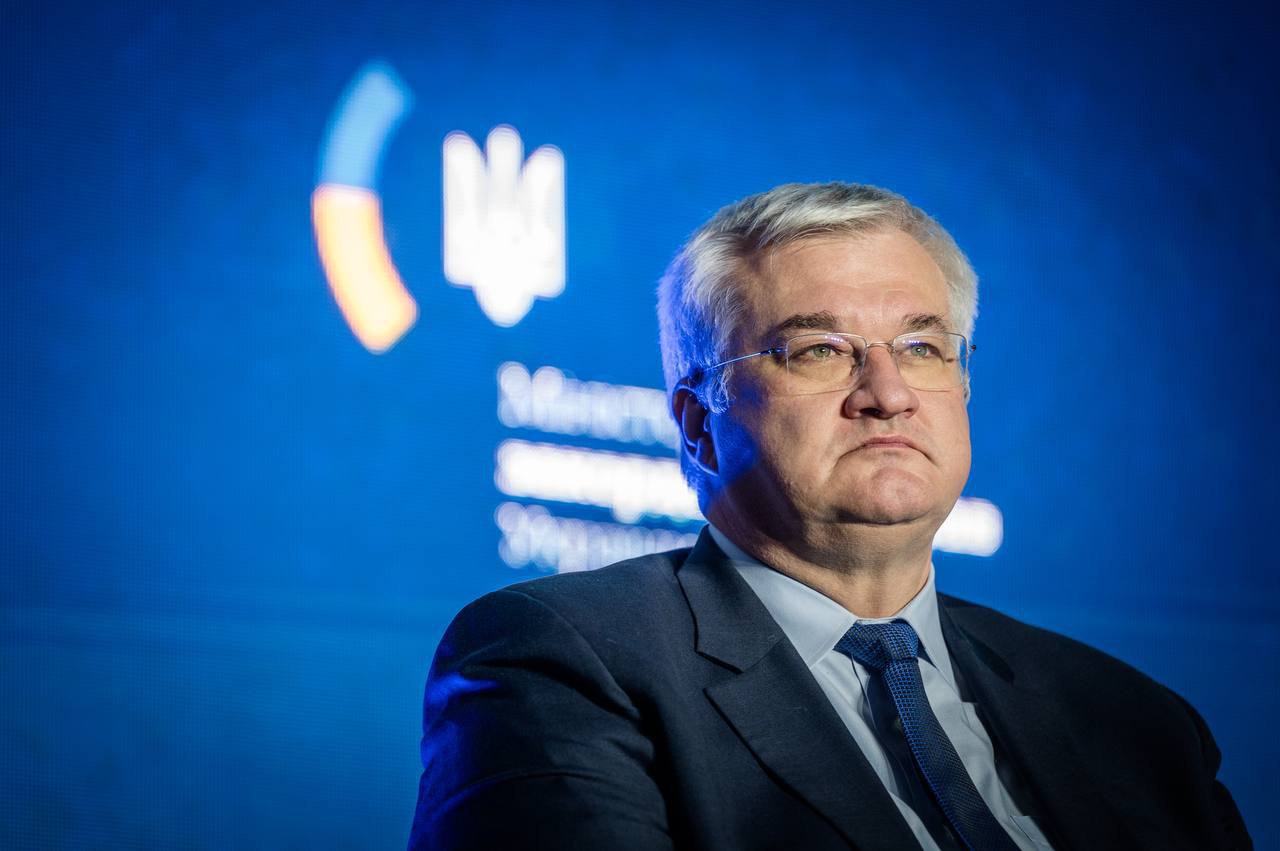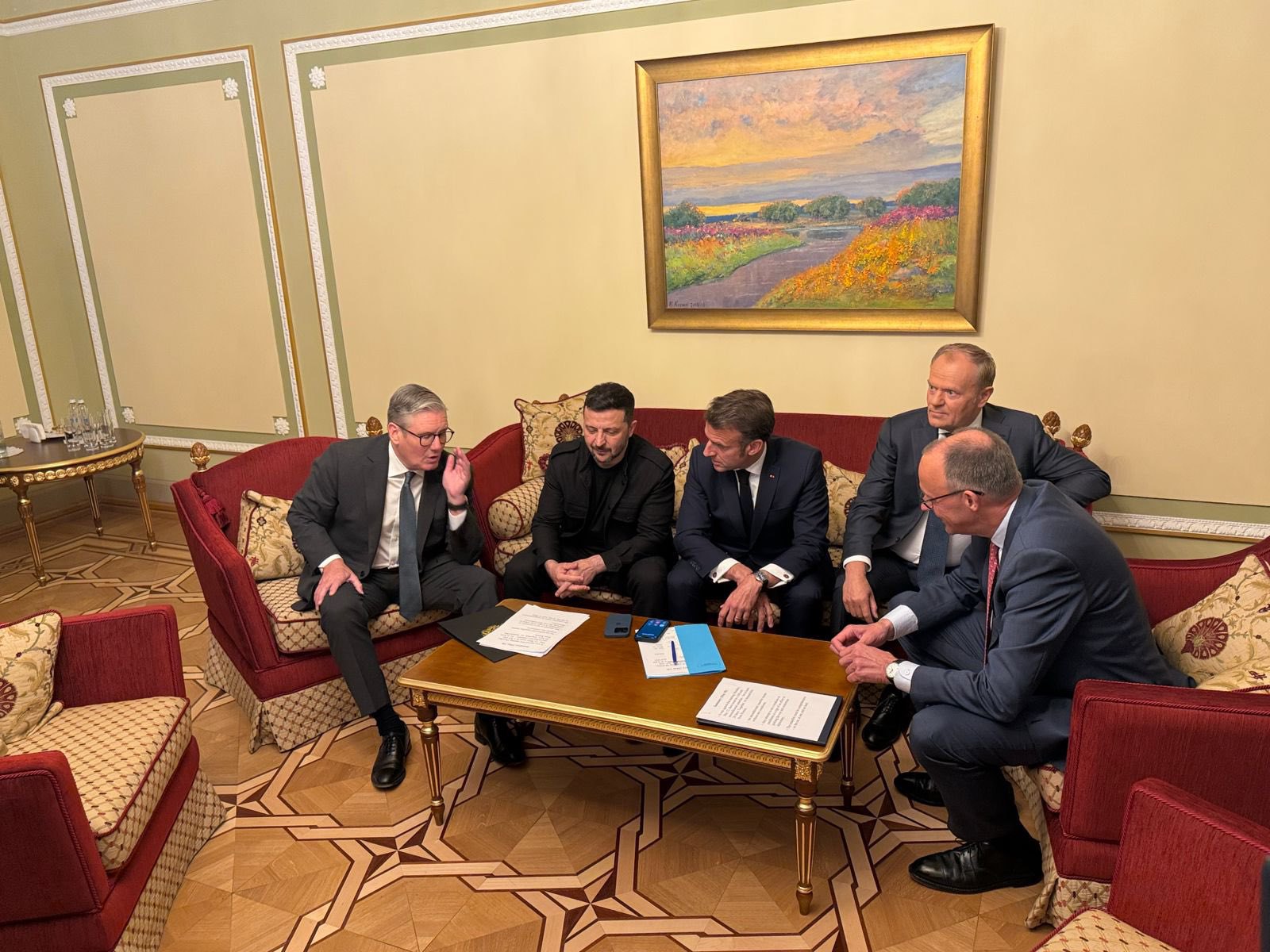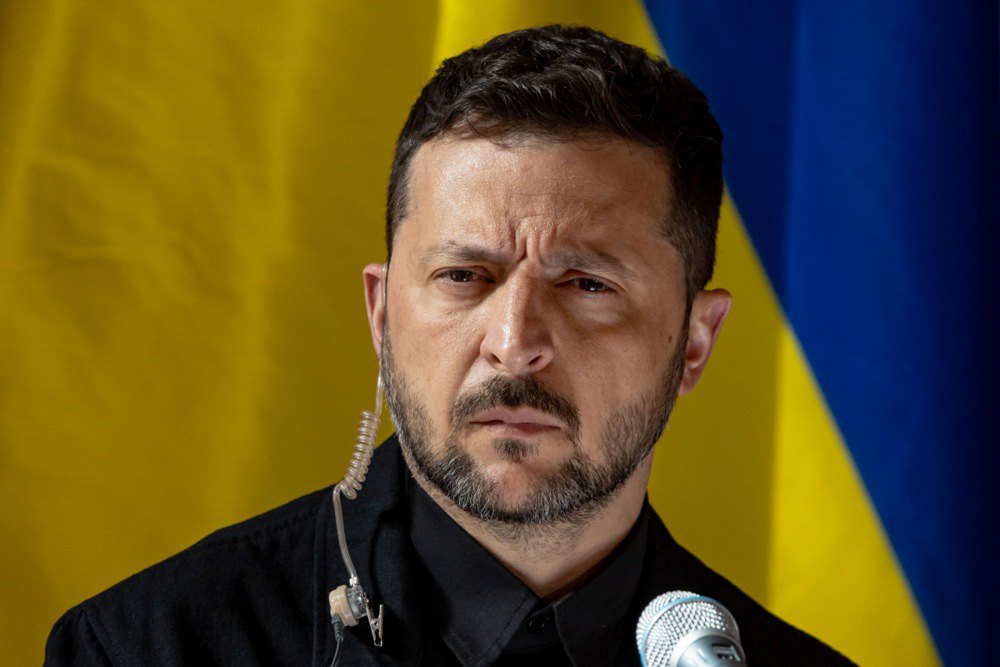“Diplomatic work yields results because we take more confident positions”
Heorgiy, what do diplomats expect from 15 May?
First of all, I would like to thank the military for their service. As diplomats, we rely on this force every day when we negotiate. Without this force, diplomacy could not function.
As for the negotiations and the peace process – all these contradictory headlines, diplomatic manoeuvres and statements must be creating absolute chaos for people.
In fact, I would not want this to have a negative impact, including on the military. I understand that when we declare our readiness for peace, which is supposedly imminent, or declare a ceasefire from every iron from morning to night, it can have a disorienting effect. I want to assure everyone that all this diplomatic work is very difficult, but it is aimed at protecting our national interests – so that we hold our line in this complex diplomatic game.
And if you look at the past few months – how this process has developed, where we started, and where we are now – you will see that diplomatic work is yielding results, because we are gaining more confident positions.
Yesterday, Ukraine’s Deputy Foreign Minister Andriy Sybiha held two rounds of important talks – the first of which was online. We had discussions in London with the UK, France, Germany, Italy, Spain, Poland and the EU. We discussed that this week is a critical week for diplomacy – for the entire peace process – and we need to determine how we and our allies will act during this period. Our position is absolutely synchronised with all of our key immediate partners.

This was followed by another joint phone call. It included the French, the Germans, Kaja Kallas from the European Union, Radosław Sikorski from Poland, and US Secretary of State Marco Rubio. This represents a synchronisation of positions with the United States.
“The important thing is to prevent anyone from accusing us of somehow hindering peace efforts”
I cannot disclose everything, as there is an ongoing diplomatic process, but I can say this: first, everyone understands that Ukraine has demonstrated its commitment to the peace process – and that Ukraine is not an obstacle to peace.
It is very important to prevent anyone from accusing us of somehow hindering peace efforts, because, as you know, there is a diplomatic game being played right now: who is to blame for the war, and who truly wants peace. Ukraine did not want this war from the beginning. We did not start it. We were attacked – and Ukraine, more than any other country in the world, wants peace. But it must be a just peace, on terms that are consistent with international law – not an ultimatum from the Russian side or a form of surrender. These daily statements are connected to this, and this must also be explained to people.
As for this week – what is going on? First, on Saturday, a very important meeting of the Coalition of the Resolute took place in Kyiv. Leaders Merz, Macron, Tusk and Starmer came to us. Together with our President, Volodymyr Zelenskyy, we spoke with other leaders who joined online, and from there, an initiative was born: let us begin a full ceasefire from 12 May – which the Russian side is avoiding – and this will allow negotiations to progress along the path to peace.

Russia avoids a long ceasefire
We know that Russia avoids a long ceasefire – it proclaims its own unilateral ceasefires, such as those for parades, Easter, and other propaganda-driven purposes, but consistently avoids any long-term commitment. On Saturday, the leaders – in coordination with the US President, by the way – held a collective call in the morning. They probably woke the US President, but coordinated their positions with him, and the initiative emerged from there: let us begin a full-fledged ceasefire on Monday.
I believe Russia and its dictator, Putin, were so uncomfortable with this proposal that he summoned foreign correspondents at night and said: let us have direct negotiations.
Perhaps this is the only card they have left to play. To which our President – and I consider this a very strong move and a bold decision – responded: very well, if that is the case, then I will come personally. I will be in Turkey myself – you come too.
And we see that almost two days have passed, and there is still no response from the Russian side. They are searching for excuses, various justifications – but there is no answer. And now the main intrigue lies in whether the Russian dictator will attend this meeting, or whether he will be afraid. At this moment, we are continuing our work, including behind the scenes.
Our work is challenging, but I want to assure you that Ukrainian diplomacy is defending Ukraine’s national interests on principle.
“Yesterday we discussed very specific steps that will follow if Russia demonstrates that it does not want peace and a ceasefire”
What should we think if Putin does not come on 15 May?
We do not need to think – we need to act, and to act very actively. Because if he does not come, it will show that Russia remains the sole source of this war and the only reason why it continues. Despite Russia’s immense, colossal losses, it continues this war – dragging in North Korea, Iran and others.

It will become obvious: if he is frightened, if he backs out, if he refuses to come to Turkey on Thursday, if he fears meeting with President Zelenskyy – then we must act. Because we have prepared sanction packages, military aid for Ukraine, and other instruments that should compel Russia to peace and bring the war to an end.
In fact, yesterday’s conversations between Deputy Foreign Minister Andriy Sybiha and his colleagues from Europe and the United States were in part devoted to sanctions – very specific sanctions – and military support.
It is crucial that these two aspects go hand in hand. Sanctions alone are not sufficient – we need both sanctions and military assistance for Ukraine. Therefore, yesterday we discussed very concrete steps that will be taken if Russia proves unwilling to commit to peace and a ceasefire. This week is truly critical – we are working for you, and for our military, among others.








